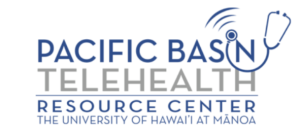Federated States of Micronesia Resources
An overview of telehealth resources available in the Federated States of Micronesia
Region Overview
The Federated States of Micronesia (FSM) is a sovereign Pacific Island country that is located in the North Pacific Ocean and is about three-quarters of the way from Hawaiʻi to Indonesia.
FSM has a Compact of Free Association (COFA) with the United States. As part of this compact, FSM citizens are able to travel, live and work freely in the US without immigration and visa requirements.
FSM has four island states – Chuuk, Kosrae, Pohnpei, and Yap with over 600 islands spanning an area of 1,000,000 square miles of the Pacific Ocean. Palikr on Pohnpei Island is the nation’s capital. The total population of FSM as of 2021 is approximately 101,680. Almost 50% of the population are Chuukese/Mortlockese, Pohnpeian 24%, Kosraean 6%, Yapese 5%, Yap outer islands 4%, Asian 1%, Polynesian 1%, other 6%.
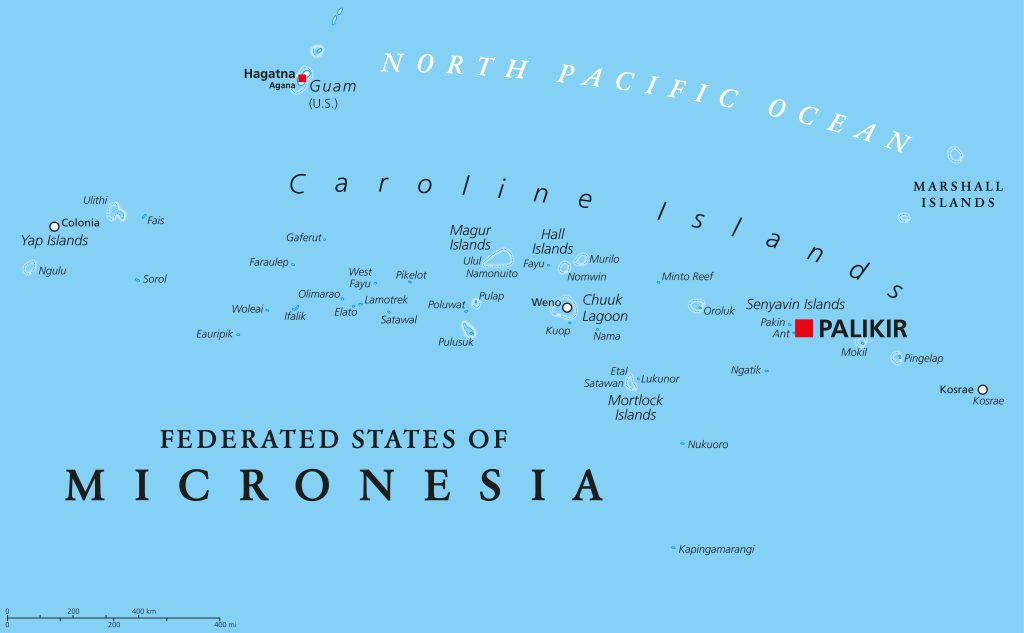
Health Ecosystem
FSM has a mixture of public and private health care providers including the FSM Department of Health and Social Affairs, the State Department of Health Services and private independent providers and clinics. Their national health insurance includes government funded MiCare and a Medicaid office for COFA migrants in the US.
In terms of hospitals there is one hospital in each island state and one private hospital, Genesis Hospital and Pharmacy. There are several community health centers in each state with more than 92 dispensaries in remote and rural areas. There are several private health clinics including: Family Clinic and Pharmacy, Sefin Health Clinic, Bersyns Community Health Center, and Pohnpei Family Health Center.
Health System
Mixed public + private
- FSM National Department of Health and Social Affairs
- State Department of Health Services
- Private: Independent Providers and Clinics
Health Insurance
National Health Insurance
- Government (MiCare)
- Medicaid for COFA migrants (in US)
Hospitals
Public
- Pohnpei State Hospital
- Chuuk State Hospital
- Kosrae State Hospital
- Yap State Hospital
Private
- Genesis Hospital and Pharmacy
Health Centers
Public
- CHC on each state with delivery sites and 92 dispensaries
Private
- Family Clinic and Pharmacy
- Sefin Health Clinic
- Bersyns Community Health Center
- Pohnpei Family Health Clinic
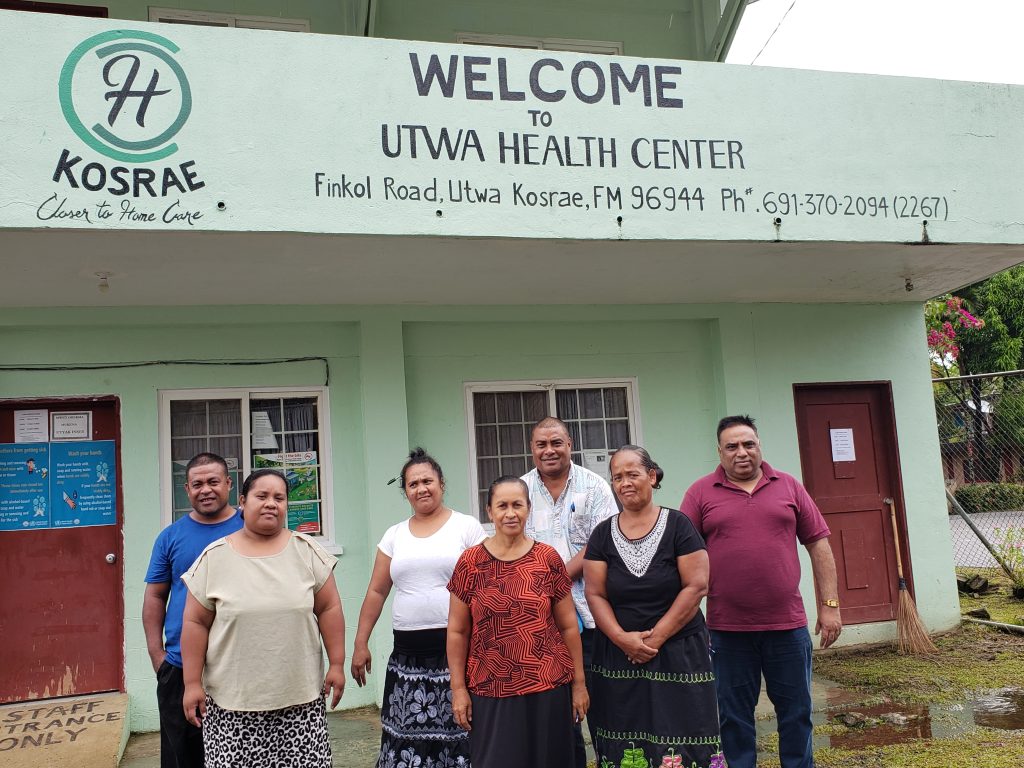
Non-communicable diseases (NCDs) are the most pressing health issue for all USAPIs. In 2010, the Pacific Island Health Officers Association (PIHOA) declared a regional state of emergency due to NCDs in the region. The leading NCD contributors to morbidity and mortality are cardiovascular disease, diabetes, and cancer. The Disease Control Priorities 3rd Edition (2015), reports that cancer is now the second most common cause of mortality in most of the USAPI jurisdictions.
To further put this in perspective, the incidence of cervical cancer in Micronesia is over eight times higher than the US (79.7 per 100,000 compared to 9.9 per 100,000). The region also has among the highest prevalence of obesity in the world, with some communities reporting as high as 90% prevalence among adults. About 83% of cancers are associated with tobacco use and obesity in the jurisdictions. Behavioral risk factors such as tobacco and alcohol use, lack of physical activity, and unhealthy diets are believed to be the main drivers. These behaviors are modifiable but limitations brought on by geographic isolation, modern lifestyles, and a heavy reliance on imported processed foods make addressing NCDs a unique challenge.
Telehealth Environment
The Federated States of Micronesia experience numerous resource (financial and human) and infrastructure limitations. These challenges have made telehealth adoption and growth slower in the region compared to the other island jurisdictions. Regardless, there have been some spots of telehealth activity throughout the country with Pohnpei State leading the way with telehealth adoption and innovation.
Telehealth Readiness
Regional Leadership Support of Telehealth
The PBTRC Pacific Island telehealth concept paper was submitted and presented to the Pacific Island Health Officers Association (PIHOA) Board of Directors that consists of the Ministers and Directors of Health in the US Affiliated Pacific Islands (USAPI). During PIHOAs 63rd Executive Board Meeting, PIHOA Resolution 2018-63-01 was endorsed which called for unified support for the advancement of telehealth. This resolution prompted the leaders of the Micronesian Island Forum (MIF) to adopt Telehealth Resolution (No. 23-04) during the 23rd Micronesian Island Forum held in CNMI. The Resolution was signed by the Presidents and Governors of the USAPI to build regional and jurisdictional capacity and expansion of telehealth in the region. The PBTRC concept paper was included as an exhibit of the Telehealth Resolution (No. 23-04).
Broadband Infrastructure
Broadband connectivity in FSM has improved significantly since the implementation of submarine fiber optic connections to Pohnpei in 2010. Since then, there has been an expansion of submarine fiber optic connections to the westernmost island of Yap State (mid-2018), Chuuk State (mid-2019), and Kosrae State (mid-2021). In 2020, FSM received $30.8M grant funds from the World Bank to implement the “Digital Federated States of Micronesia” project that includes the connection of outer islands, terrestrial fiber infrastructure build-out to support eGovernment services and economic development.
Current and Emerging Telehealth Initiatives
Pohnpei Hospital Telehealth Projects
Under the direction of Dr. Payne Perman, a telehealth room in Pohnpei Hospital was launched in December 2016. Local donors were identified to support the telecommunication costs and equipment. The room is equipped with a 10 mbps up and down link.
In January 2018, Pohnpei Hospital started practicing tele-pathology with the Hokkaido Cancer Center in Sapporo, Japan. Pohnpei transmits digitized images to Japanese pathologists who assist local doctors in identifying abnormal pathology readings for quicker cancer diagnoses and potentially life-saving interventions. Normally, sending the test results off-island would take 2 weeks up to 3 months to get a diagnosis, now they can provide on-the-spot diagnosis within minutes of the consultation. Further, the lab technician in Pohnpei State Hospital was able to process the backlog of 235 pap smear tests from Chuuk State. Read the full story in the Kaselehlie Press (PDF).
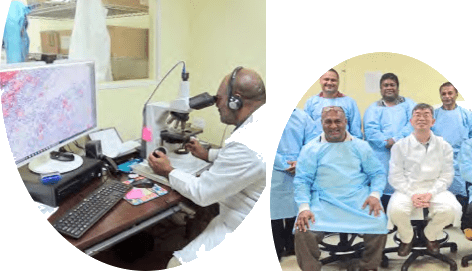
Other Telehealth Initiatives
- In 2019 Pohnpei conducts first live gastrointestinal endoscopy consultation by video teleconference.
- In 2018 Dr. Payne Perman (Pohnpei Hospital) partnered with Dr. Chris Hair from the Australian and New Zealand Gastroenterology International Training Association (ANZGITA), and Dr. Mai Ling Perman from the Fiji School of Medicine, Fiji National University to launch a series of distance learning sessions for Pacific Island health care providers in Gastroenterology. In 2021, the sessions extended to Responding in the Pacific Education (RIPE) series for specific COVID-19 response training attracting sometimes more than 100 participants from all across the Pacific, including USAPI but also non-US affiliated Pacific Islands including Fiji, Tonga, Cook Islands, Papua New Guinea, and Vanuatu. Read the publication: Development and Implementation of Pacific Wide Telehealth Services in Gastroentrology.
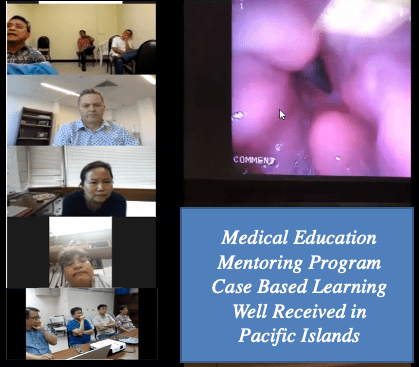
- Pacific Island TB Nurses’ Network, a CDC/Australian Respiratory Council, uses Zoom video teleconferencing on a regular basis for TB case consultation for USAPI Nurses. The video teleconference has significantly improved the consultations that were previously conducted via telephone conference calls.
- Pohnpei Hospital is currently involved in Rheumatic Heart Disease (RHD) screening and medical personnel are receiving training and conducting screening using portable handheld equipment.
- Kosrae Community Health Center (KCHC) and the University of Hawaiʻi Department of Psychiatry (UH DOP) have engaged in a partnership since 2018 to provide integrated telebehavioral health to augment KCHC’s existing primary care services as there were no behavioral health providers on-island. Using an adaptation of the Collaborative Care Model, which offers a population-and team-based approach to care, KCHC and the UH DOP optimized on-the-ground and culturally-sensitive support for patients by training local providers in behavioral health issues. Once trained, these local providers provided direct assessments and support to patients while receiving feedback from the UH DOP consulting psychiatrist. The primary care provider will also receive support with any medically-focused interventions for the patient’s behavioral health issues
- At Shriners Children Hospital, telehealth services are utilized to evaluate new patients and provide consulting for post-surgical examinations and follow-ups.
Continued Medical Education Courses
Pacific Open Learning Health Net (POLHN)
Courses offered by POLHN are available to all eligible staff. The following are programs offered through the POLHN:
- Pacific Paramedical Training Centre (PPTC) in New Zealand: Provides training in the medical laboratory sciences.
- The Penn Foster Dental School (PFDS): American based college in association with the Pacific Basic Dental Association. PFDS offers a nine month Dental Assistant Career diploma with this partnership.
- POLHN partners with the Fiji National University (FNU) to offer online courses through the School of Public Health. There are a number of courses that are offered including: postgraduate certificate or diploma in Applied Epidemiology, Postgraduate certificate or diploma in Health Research, Postgraduate certificate or diploma in Health Service Management, Masters in Health Service Management, Postgraduate certificate or diploma in Public Health and a Masters in Public Health.
- University of Fiji: Registered nurses at the MOH can apply for the Bachelor of Nursing, Master of Nursing (thesis) and Master of Nursing (coursework).
Project ECHO
Program provides primary care physicians specialty knowledge and training through distance learning in order to provide quality services to their patients in rural areas. The specific programs include: Endocrinology/Diabetes, Geriatrics, Behavioral/Mental health.
Informal Physician Exchange
Similar to other island jurisdictions, the physicians in the Federated States of Micronesia have been able to utilize email, Skype, FaceTime, texting, and messenger applications to communicate with other physicians and/or specialists in an informal type of physician exchange solution. Through the creative utilization of these applications, Physicians are able to consult with their peers to provide recommendations. Although in the FSM, HIPAA compliance is not enforced, if services and/or communication takes place with a provider in the United States, the US federal regulations apply.
